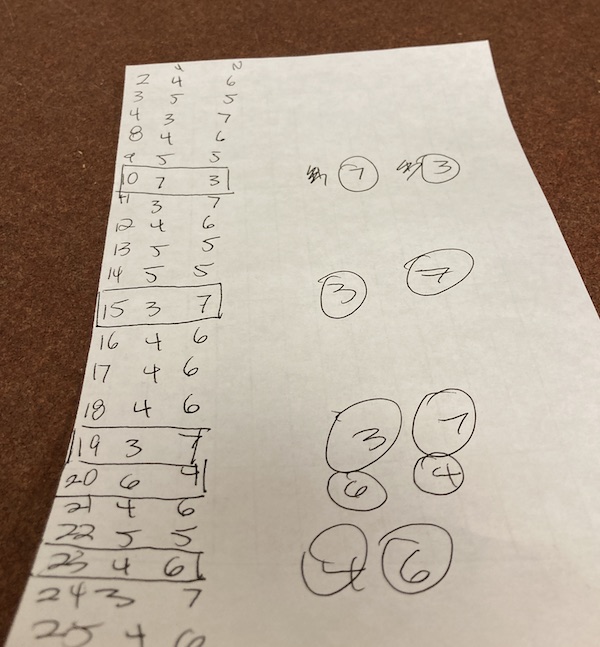
We’re revving up for town meeting day (Saturday) and as someone on the Board of Civil Authority (the chair, actually) there are a few little pre-voting tasks. Voting is on Tuesday. One of them is checking the tabulator. This involves sending sample ballots through and making sure the machine counts correctly and operates correctly. It’s a bit of a slog but also kind of interesting. Our town has four main ballots which everyone votes: presidential (pick a party), local (i.e. the school region which includes three towns), and the town. The town staff fill out fake ballots including stuff like slightly under- or over-filled circles, a few write-ins, and then they go through the tabulator. This is pretty straightforward though there is a bit of “Check to make sure this number on this little tag is the same as I’m writing in the book when I unlock this part of the machine” stuff which feels a little performative but maybe that’s because we’ve been really lucky to not have people angrily contesting any of our elections.
The next part, however, is to hand count the ten ballots in each category. This seems like it would be simple but in point of fact, it’s weirdly hard. The candidate ballots are straightforward. But then there are local funding issues, questions similar to “Should we give $1000 to the food shelf?” and similar. This is a two-sided ballot in which the numbering starts at 2, continues to 3 and 4, and then hops to eight, and then counts up to 25. So twenty-one separate items on which people vote yes or no. I count them. A representative from the “other party” (I am registered as a Democratic candidate as a JP, I’m planning to run as an Independent this year) also counts them. If our numbers don’t match–and in this picture you can see that I’ve boxed the ones where our counts did not match–we count them again. Only one of these non-matching counts was mine, but I was really hoping for zero.
Meanwhile there is an adorable child nearby doing adorable (but noisy) child things and it’s like my kryptonite “Count these numbers while you hear random noises.” Also it’s late, not in relative terms but late in the day for me to be doing brain stuff. It takes about ninety minutes, time that is definitely after the town clerk’s usual work day would end and he’s remarkably gracious about it. At the end of it, we’ve checked that our numbers match both each other’s and the ones the machine spits out. The sample ballots get locked in some special place where they sit for sixty days in case someone wants to check our work.
I’ve been dialing back a little bit of my participation in non-work stuff lately. Having a new job has made me want to carve out my volunteer time differently. I’m stepping down after my term on the American Library Association Council–a little more about that here–and I’m stepping down from my position on the Conservation Commission after eight years. I strongly believe that small towns only work, only get to keep working, because of the many volunteers who do the small jobs that in other, larger places would be done by paid staff. Whenever I meet new people in town I’m one of those people who asks how they’re going to get involved with the town. If they don’t have ideas I can usually suggest some. I look forward to voting day(s) every year. Not only am I usually running for Justice of the Peace (that happens in November) but I get to see most of my neighbors and do some quick catch up with them. Town Meeting Day and Voting Day show us in all our winter gear, not quite used to being around people or being outside our winter dens. I get to wear a little name tag and help make democracy easier for people. I’m glad to be able to do it.

